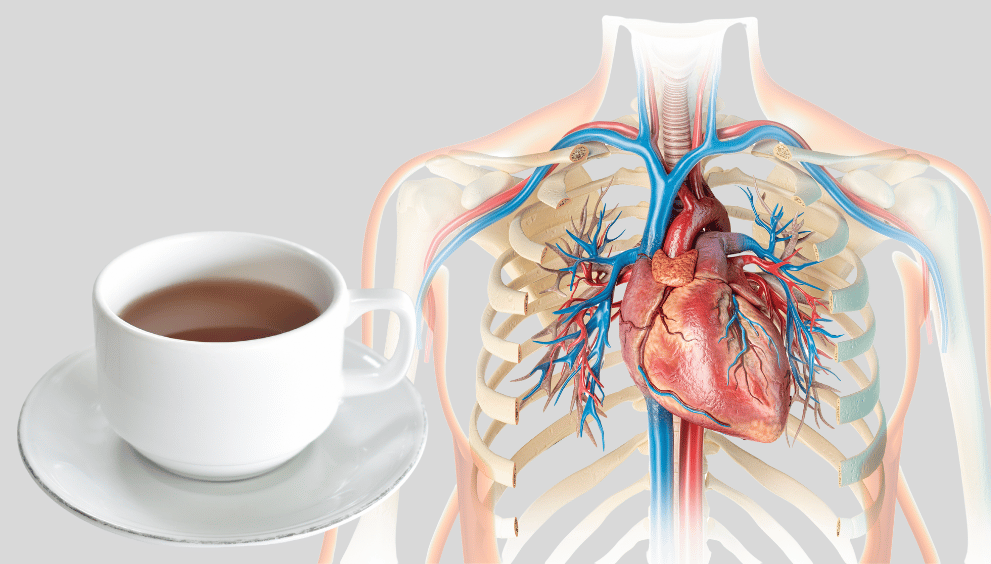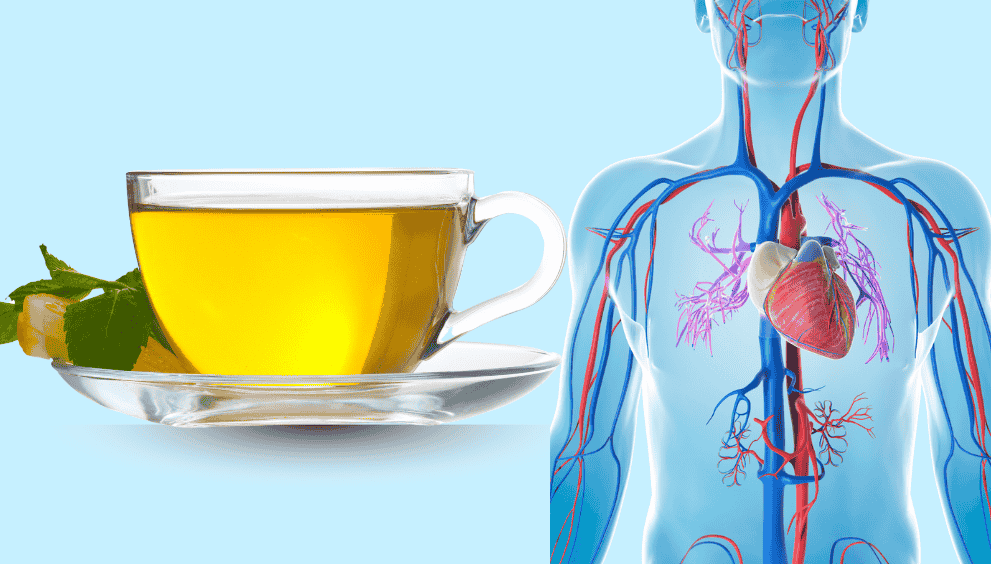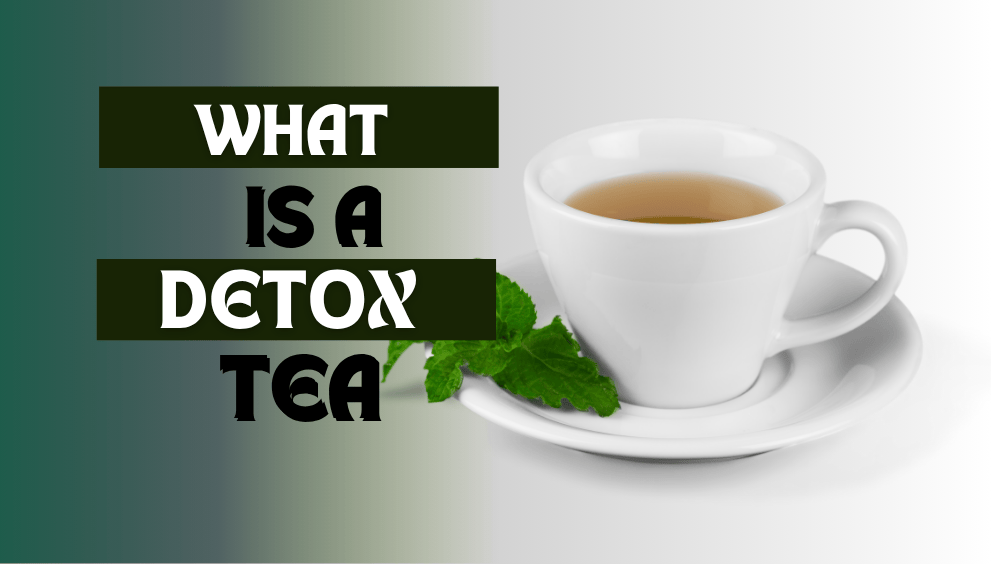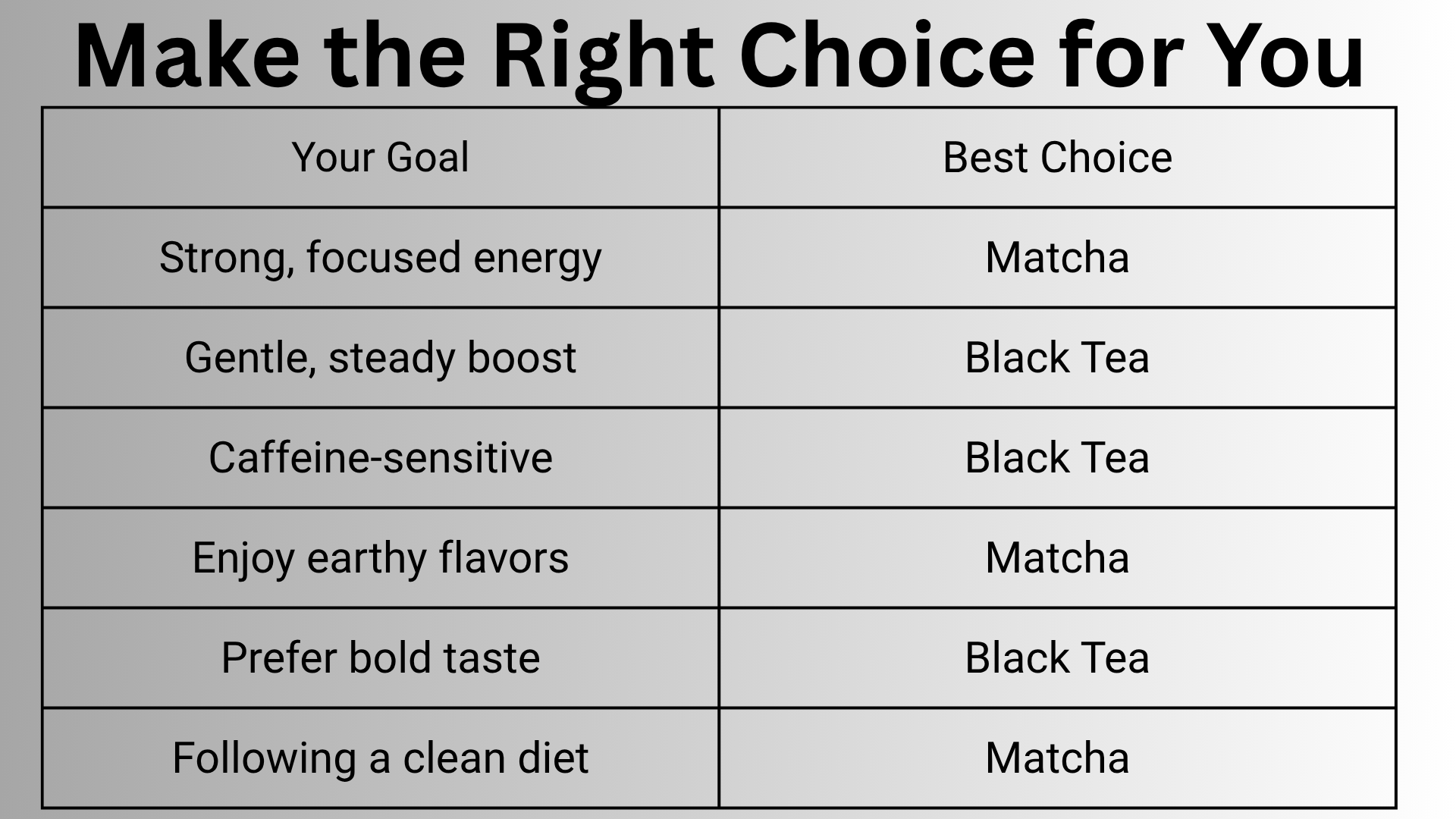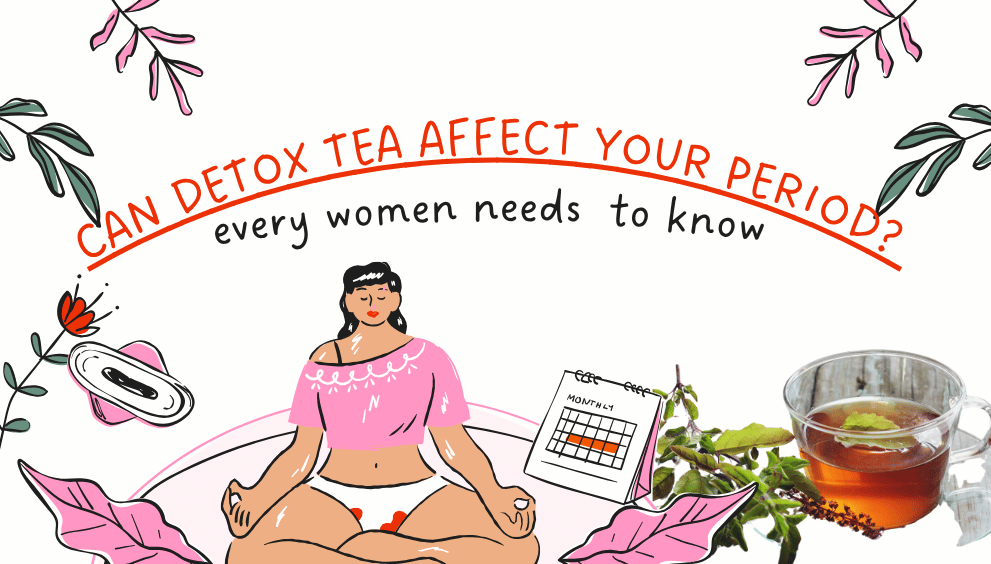Does Matcha have more caffeine than black tea?

Does matcha have more caffeine than black tea? Explore how their caffeine levels compare, what affects energy, and which tea is better for your health.We compare caffeine levels, health effects, and brewing tips for tea lovers! Matcha has earned a reputation as a powerful energy booster, but how does it compare to black tea in terms of caffeine content? If you’ve ever wondered, “Does matcha have more caffeine than black tea?” – the short answer is yes, generally. However, the whole story depends on brewing methods, tea varieties, and personal caffeine sensitivity.
Quick Answer: Does Matcha Have More Caffeine Than Black Tea?
Yes, Matcha generally contains more caffeine than black tea.
A standard cup (8 oz) of Matcha can contain 60-80 mg of caffeine, while black tea contains about 40-70 mg. The actual caffeine content depends on various factors, including preparation method, serving size, and steeping time.
What Is Matcha?
Matcha is a type of green tea made by grinding green tea leaves (from the Camellia sinensis plant) into a fine matcha powder. Unlike traditional green tea, Matcha is not steeped; instead, it is whisked. Instead, the entire powder is steeped in hot water, allowing you to consume the whole leaf, including its natural nutrients and caffeine.
- Made from green tea leaves (Camellia sinensis)
- Ground into fine matcha powder
- Whisked directly into hot water (not steeped)
- Originated in Japan.
- Vibrant green colour, earthy flavour
- It is also rich in antioxidants and amino acids like L-theanine
Why It’s Special:
- You get more caffeine, antioxidants, and nutrients because the whole leaf is consumed
- Matcha also contains L-theanine, an amino acid that promotes calm focus
- It has a smooth, earthy, and slightly grassy flavour
Summary
Matcha green tea is a powdered tea made from finely ground green tea leaves. It’s rich in nutrients, provides a calm yet substantial energy boost, and is consumed by whisking the powder directly into the water, resulting in more caffeine than most other teas.
What Is Black Tea?
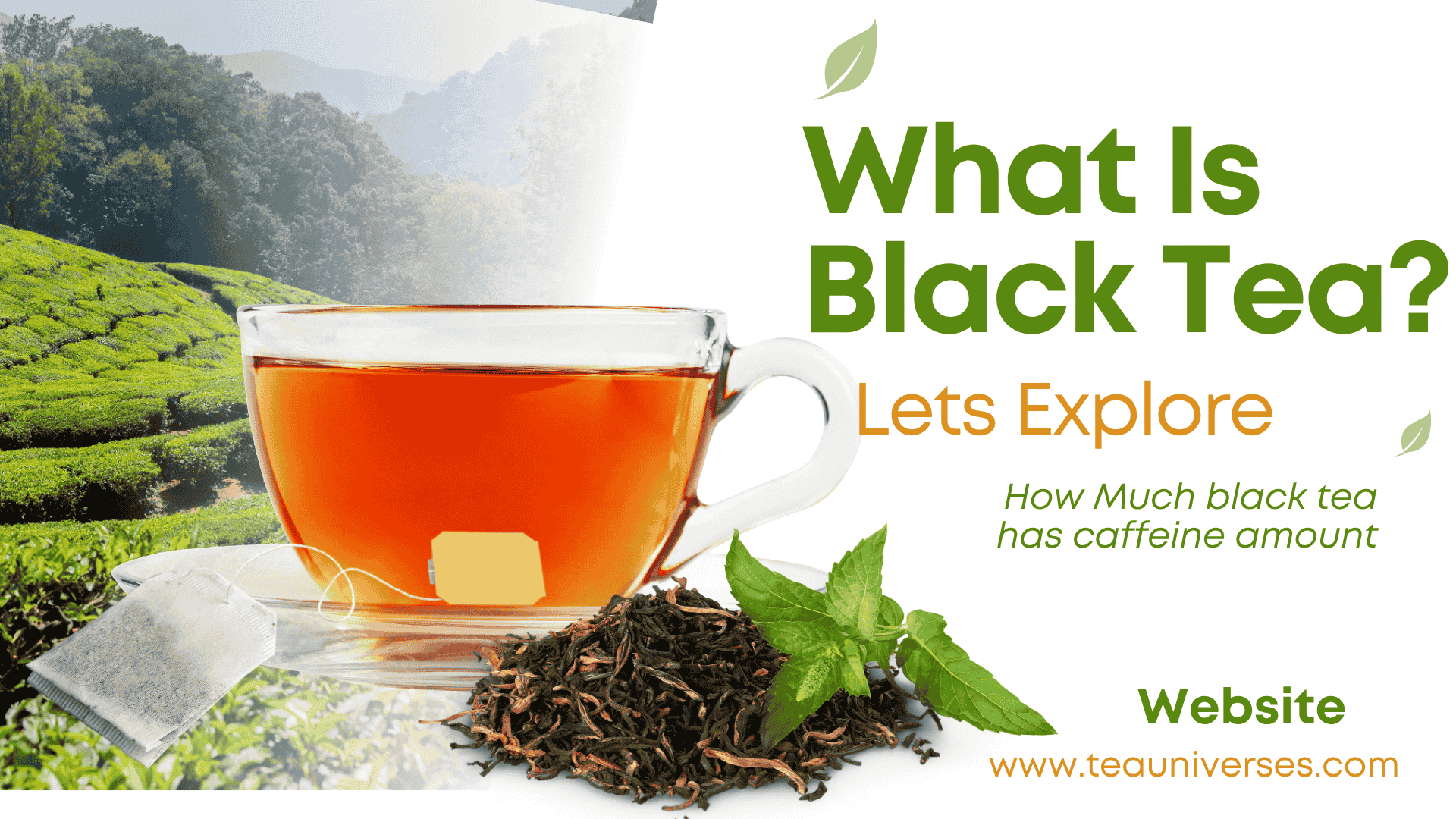
Black tea also comes from the Camellia sinensis plant, but the leaves are fully oxidised, which gives the tea its dark colour and bold flavour. It is one of the most popular types of tea globally.
- Usually steeped in hot water.
- It is found in many blends, such as English Breakfast and Earl Grey.
- It usually contains a moderate amount of caffeine.
- How it’s made (oxidised leaves of camellia sinensis)
After the tea leaves are harvested, they undergo complete oxidation. This means the leaves are exposed to air for a prolonged period, which causes them to darken and develop a rich, bold flavour. This process gives black tea its deep colour and pungent taste.
How It’s Prepared
Black tea is usually steeped in hot water (not boiled powder like Matcha). The tea leaves or bag are soaked for 2–5 minutes, depending on your preferred strength of tea.
Summary
Black tea is a classic, oxidised tea with a bold taste. It’s one of the most widely consumed types of tea globally and provides a smooth, steady caffeine boost, making it a favourite for mornings and afternoons.
Common Types of Black Tea:
- English Breakfast
- Earl Grey
- Darjeeling
- Assam
- Ceylon
Caffeine Content: Matcha vs Black Tea
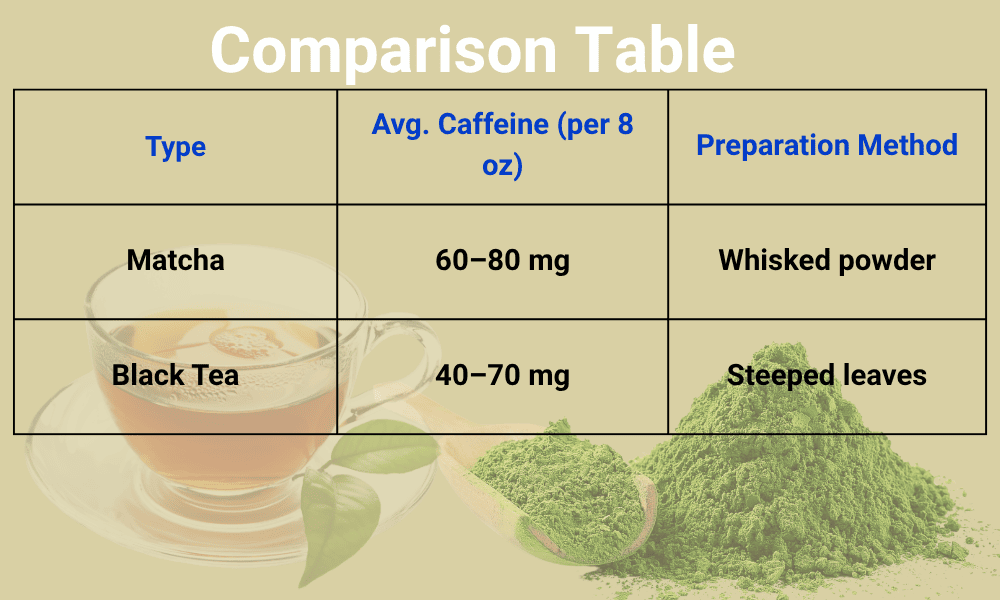
Factors affecting caffeine levels:
- Steeping time (for black tea)
- Amount of powder (for Matcha)
- The temperature of the water
Why Matcha Has More Caffeine
Matcha generally contains more caffeine than black tea because of the methods of its preparation and consumption.
You use the whole leaf.
With matcha green tea, you’re drinking the entire tea leaf in powdered form, not just an extract. In contrast, black tea is steeped, and the leaves are discarded, releasing only a portion of the caffeine into the water.
Fine powder increases caffeine concentration.
Because matcha powder is finely ground, it dissolves completely in water, delivering more nutrients and caffeine per cup—the concentrated form results in a more substantial boost than steeped tea.
Matcha quality matters
High-quality Matcha, like ceremonial grade, is made from young, shade-grown leaves that naturally contain more caffeine. This makes premium Matcha even more potent than lower-grade varieties.
In short, the combination of whole-leaf consumption, powder form, and leaf quality explains why Matcha green tea offers a greater caffeine punch than black tea.
Health and Energy Impact
Both Matcha and black tea can boost your energy levels, but they do so in different ways, depending on their unique compounds and caffeine content.
How caffeine affects energy levels
Matcha: Calming and Focused Energy
Matcha is rich in caffeine, but what sets it apart is L-theanine, an amino acid that works with caffeine:
- It promotes a state of calm alertness without the annoying side effects.
- The energy is released slowly, giving you hours of sustained focus.
- It is ideal for morning routines, studying, or productivity.
- Matcha also contains L-theanine (an amino acid), which provides smoother energy and less jitteriness.
Black Tea: A Gentle Stimulant
- Black tea contains less caffeine than Matcha and is lower in L-theanine.
- It provides a mild energy boost, perfect for casual sipping.
- The effect is shorter and less intense, but still sufficient to elevate your mood and improve focus.
Caffeine Sensitivity: What to Consider
Some people are more sensitive to caffeine and may experience jitters, insomnia, or stomach upset.
- If you are sensitive to caffeine, black tea is a better choice.
- If you are not, Matcha can offer a more powerful and sustained energy boost.
Both teas can boost your energy levels, but Matcha provides a smoother, longer-lasting effect due to its combination of caffeine and amino acids. In contrast, black tea is an excellent option for those who prefer a lighter touch or are sensitive to caffeine.
Matcha vs Black Tea: Which One Should You Choose?
Choosing between Matcha and black tea depends on your personal goals, taste preferences, and how your body reacts to caffeine. Here’s how to choose the best one for your needs based on your goals, including energy, taste, and caffeine sensitivity. Let’s explore them deeply.
1. Energy Goals
- If you need intense, focused energy for work, study, or workouts, go for Matcha.
- If you prefer a gentle boost without overstimulation, choose black tea.
2. Caffeine Sensitivity
- If you’re sensitive to caffeine, black tea is the safer option. It has less caffeine and a milder effect.
- If you’re not sensitive and want more energy, Matcha provides a stronger, longer-lasting lift thanks to L-theanine.
3. Morning vs Evening Tea
- Matcha is best in the morning or early afternoon. It delivers sustained energy and focus.
- Black tea is more flexible and can be enjoyed later in the day, especially low-caffeine varieties like Earl Grey or Darjeeling.
4. Taste Profile
- Matcha has a rich, earthy, slightly bitter taste with a creamy texture when whisked.
- Black tea has a bold, robust, and sometimes slightly sweet flavour. It pairs well with milk, lemon, or honey.
5. Diet and Lifestyle Preferences
- Matcha is popular in clean-eating, vegan, and antioxidant-rich diets.
- Black tea fits traditional tea-drinking habits and works well with or without milk.
- If you’re fasting or cutting sugar, both teas can be consumed plain and are calorie-free.
Final Thoughts
If you’re trying to decide between Matcha and black tea, understanding their key differences can help you choose the one that best suits your lifestyle, flavour preferences, and energy needs.
Matcha has more caffeine than black tea.
Because you’re consuming the whole tea leaf in powdered form, Matcha provides a stronger and longer-lasting caffeine boost than black tea. It also contains L-theanine, an amino acid that helps create a calm focus without the jittery feeling often associated with coffee or strong tea.
Help Making the Right Tea Choice For You:
Here’s a simple guide to help you decide:
Choose Matcha if you:
- Need strong, sustained energy and focus.
- Want calm alertness without jitters?
- Enjoy earthy, grassy flavours.
- Follow a clean or antioxidant-rich diet.
Choose Black Tea if you:
- I prefer a smoother, milder energy boost.
- Are sensitive to caffeine
- Like bold, traditional tea flavours
- Want tea for any time of day, including evening?
Conclusion
Both teas offer unique benefits. If you’re looking for a powerful energy boost with mental clarity, Matcha is your best bet. If you prefer a gentle and relaxing tea experience, black tea is the best choice.
Select the option that suits your body, schedule, and taste. Or enjoy both — Matcha for the morning, black tea for the afternoon!
FAQs – Matcha, Caffeine & Tea Basics
1. Is caffeine bad for you?
Caffeine is generally not harmful to most people when consumed in moderation. It can improve focus, energy levels, and even metabolism. However, too much caffeine may cause insomnia, jitteriness, increased heart rate, or anxiety, especially in sensitive individuals.
2. How much caffeine is too much?
According to health experts, up to 400 mg of caffeine per day is considered safe for most healthy adults. That’s roughly:
- 4–5 cups of black tea
- 3–4 servings of Matcha
- Or about 3 cups of brewed coffee
- If you’re sensitive to caffeine or pregnant, lower amounts are recommended.
3. How do I get started with Matcha?
Start with culinary-grade Matcha, which is more affordable than ceremonial-grade Matcha, and a basic matcha kit, including matcha powder, a bowl or mug, and a bamboo whisk (or milk frother). Then, begin with 1/2 to 1 teaspoon per cup, whisking with hot (not boiling) water, and enjoy!
4. How do I make Matcha?
Here’s a simple way to prepare Matcha:
- Take one teaspoon of matcha powder into a cup
- Add 2 oz of the hot water at a temperature of 175°F or 80°C
- Whisk vigorously in an “M” or “W” motion until frothy
- Top with more water or milk to taste
- Enjoy it hot or iced!
5. What are the benefits of matcha tea over coffee?
Matcha provides a calmer, longer-lasting energy boost thanks to L-theanine, an amino acid that helps reduce jitters and crashes. It also contains powerful antioxidants (like EGCG), may support metabolism, and is less acidic, making it gentler on the stomach.
6. How much Matcha should you consume?
1–2 cups per day is ideal for most people. This equals approximately 1 to 2 teaspoons of matcha powder per day. Unlimited consumption can lead to caffeine-related side effects, so start with a small amount and observe how your body responds.
7. Does Matcha contain caffeine?
Yes, Matcha contains caffeine — usually about 60–80 mg per 8-oz cup. Because you consume the entire powdered leaf, Matcha tends to have more caffeine than regular steeped green tea or black tea.
8. What does Matcha taste like?
Matcha has a smooth, earthy, slightly grassy taste. High-quality ceremonial Matcha is often described as umami-rich, with a delicate sweetness and no bitterness when appropriately prepared.


